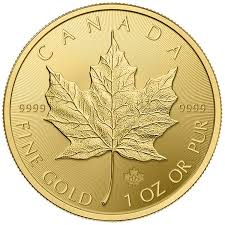 Gold is one of those assets that people often get emotionally attached to – they either love it, or hate it.
Gold is one of those assets that people often get emotionally attached to – they either love it, or hate it.
But any successful investor will tell you that you need to be emotionally detached when choosing your investments.
On the one side you have the “gold bugs” – the world is ending, flee to a universal currency types. It’s a global currency, it’s immune to inflation and immune to government interference in an economy, they’ll argue.
On the other, you have people who point to gold under performing vs stock market prices and indexes like the S&P500, and even bonds over a 30 year period. Gold’s recent renaissance is just a phase, in their eyes. Warren Buffett even goes so far as to say it “has no utility” in typical, withering derision.
But no matter which camp you are in, you should have some gold in your portfolio.
There are two good reasons why.
- When the stock market crashes – gold protects your portfolio.
There is little to no correlation between equities and gold prices. The table below shows the correlation of gold with various Asian markets.

The closer the number is to 1, the more correlated a market is. In this table, most Asian, and indeed global stock markets, tend to move in the same direction, resulting in a positive correlation. This means that all of the major Asia stock markets tend to move at the same time, in the same direction, with relatively the same amount of movement up or down.
Compare that to their correlation to gold – and it is non-existent. If two markets have a correlation at or near zero, it means they move independently of each other. You can see from these figures that Gold, while not entirely at zero, has very little correlation with those markets.
So regardless on how well, or how poorly, a stock market performs, gold is likely just to carry on doing its own thing.
And that’s great for an investor. It becomes a viable option to diversify, or hedge, against their portfolio.
- Gold protects you against the degradation of paper currency.
The value of gold is intrinsically different to paper currency. It is dictated by how much a bank or a country says it is, its limited (but steady) in its supply, and it won’t be printed out of nothing ala quantitative easing.
In 1971, the US joined the rest of the world in abandoning the ‘gold standard’, which was to back its currency against the value of the precious metal. All currencies are “fiat currencies,” which means that they’re worth something just because the issuing government says it is, and with that there is a ‘leap of faith’ involved.
For the most part, this goes off without a hitch. However, when there’s war, famine, natural disasters, bad politics or anything else that causes a country or continent to lose faith in a government, the country’s currency will take the hit. With owning physical gold, you don’t run that same risk of degradation. In fact, a rise in the price of gold versus a given currency may be a sign of trouble for the government backing that currency.
Ultimately, gold is a very simple thing to invest in – or get money out of. You don’t need a broker, or own shares, or collect dividends. You simply need to own some gold. It could be in the form of gold coins or bullion, but it could even be gold jewelry that you have lying around. There are a number of online companies that will buy your unwanted gold, giving you a quick and easy way to raise cash when you need it, or when other investments around you look uncertain.




No Comments